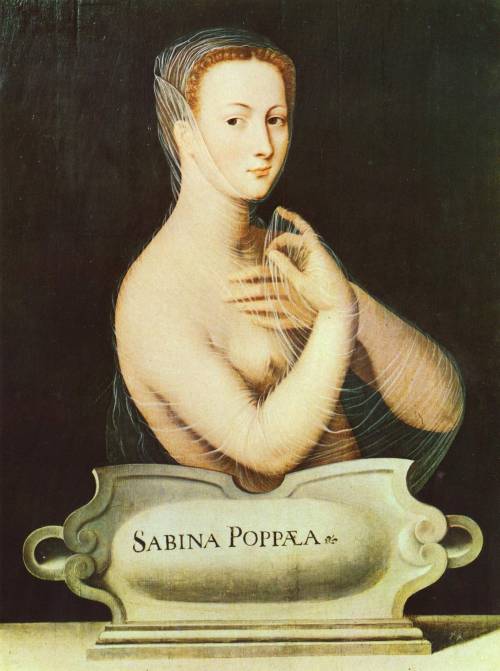Currently on BBC Radio 3, the broadcast of Peter Sellars'
The Indian Queen, recorded in Madrid last year, where it received its world premiere. Don't mistake it for Henry Purcell's
The Indian Queen. What remains of Purcell's opera lasts less than an hour: Sellars'
The Indian Queen runs four times as long. He's padded the music out with music from other Purcell works, and readings from a modern novel.
In principle, there's nothing wrong with that. Pasticcio was a perfectly normal practice in an age where audiences were happy to hear hot numbers they'd heard before revived and incorporated into new operas. The real secret lies in getting the mix right, so the ingredients blend in a coherent whole. Glyndebourne's
The Fairy Queen (
more here) is a brilliant example. It recreates the ebullient spirit of baroque imagination in glorious spectacle. The Met's
The Enchanted Island (
more here) was another good example, though it would have been more appreciated if it had preniered in Europe, where the style is better understood. But Sellars'
The Indian Queen unfortunately doesn't come remotely close to that level of inventive sophistication.
For one thing, Sellars wants to create a mega drama about the Conquistadors and the indigenous empires of Central America. It's a wonderful subject, which would lend itself well to dramatic interpretation. But Purcell's
Indian Queen was pure fantasy, describing a much earlier period about which Purcell and his contemporaries had little real knowledge. These "Indians" were English people in fancy dress. Purcell's
Indian Queen is no more about Latin America than is Indian Queens, the village in Cornwall. Why conflate the two? English baroque sounds very different to Spanish baroque. Spanish baroque is hardly unknown - there's even a hybrid genre of works written in Latin America. Why use English Protestant church music when there's so much Spanish and Central/South American church music to be had? It just sounds wrong. If Sellars wants to explore ideas of cultural collision what could be more appropriate? The Spanish colonized the Americas by imposing their religion on empires with quite complex cultures of their own because they didn't know any better. By imposing Purcell onto a subject Purcell had nothing to do with, Sellars is using the same kind of unthinking colonialist values the Conquistadors imposed on the natives. In the 21st century, when millions of people are multiracial and multicultural, it's a regressive concept.
For his narrative, Sellars uses the novel
The Lost Chronicles of Terra Firma by Rosario Aguilar, published in 1992. which describes the period from the perspective of the women of the time. Most history is written from a west-centric world view following the assumed superiority of male values, and white male in particular. Modern historians are much more aware of "the Crowd in History" and of non-western cultures. The New York Times article (
read here) suggests that Sellars' knowledge of the period and of the issues is fairly limited, but using the novel is, in principle, a good idea. Unfortunately, the texts are delivered with a kind of hysterical agit prop. The actress shouting the lines uses the same cadential sequences all the time, like a machine gone mad, spitting out sounds instead of meaning. Perhaps this is supposed to suggest shamanic incantation, but it's counterproductive to real emotion. Within a very short time her voice becomes strained and metallic, so grating that it's almost too painful to listen to, which defeats the whole purpose of the exercise.
The other performances are perfunctory. The conductor doesn't have much feel for Purcell, and the music feels tediously drawn-out and ponderous. The choruses, hampered by the disjuncture between English music and the savagery of the story they're singing about, sound lost. The soloists are adequate rather than impressive, with two exceptions: a strong Hunahpu, Mayan hero/Trickster twin deity in Vince Yi, but a Don Pedro de Alvarado with such wide vibrato that it's annoying (Noah Stewart). When Sellars'
The Indian Queen comes to the ENO in London next year, things should improve, especially with the conducting. The production was co-commissioned with Perm, in Siberia, so its own chief conductor (Currentzis) conducts. To put it kindly, he's not a Purcell conductor even though he has done Purcell before. For Perm,
The Indian Queen is probably a big thing but that doesn't mean it's good for the rest of us.
At the ENO, Lawrence Cummings is conducting, and he's good, though that might emphasize the Englishness of Purcell, further divorcing music from subject. We'll have the same Indian Queen (Julia Bullock), a new Don Pedro, but worryingly, the same rabid narrator. Live, at the ENO, we'll be spared the horrors of the close-ups evident in the film of the Madrid performance. Nearly every performer has the exact same expression of awed surprise. It's almost as if they were all wearing masks. Is this a remake of Sellars'
Guilio Cesare ? The characters move like automatons. It's been a long time since I've seen acting this bad. (The DVD was broadcast for a while). Perhaps the problem is that Sellars takes himself far too seriously. But I guess the ENO needs something to bring the punters in.



%2BROH.%2B%2BPHOTOGRAPHER%2BCATHERINE%2BASHMORE.jpg)
%2BROH.%2BPHOTOGRAPHER%2BCATHERINE%2BASHMORE-1.jpg)
%2BROH.%2BPHOTOGRAPH%2BCATHERINE%2BASHMORE.jpg)





